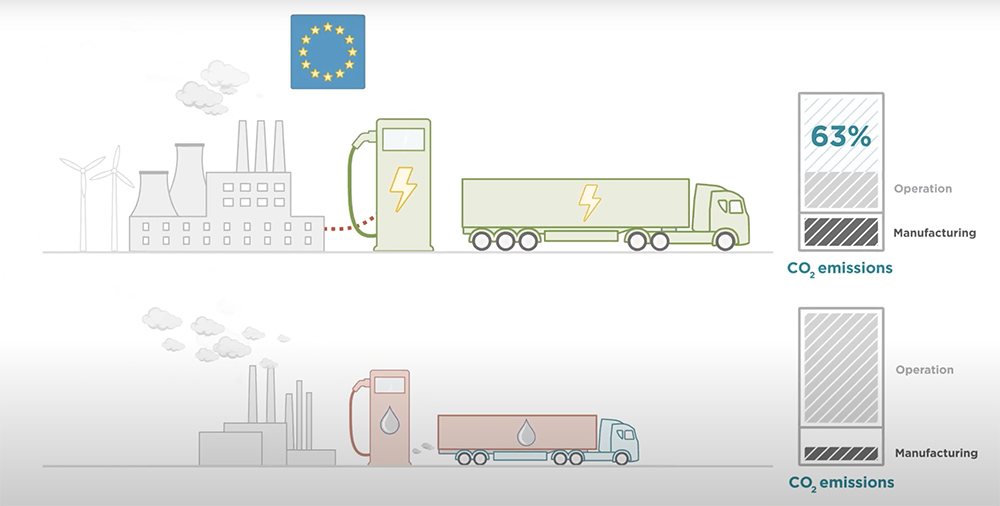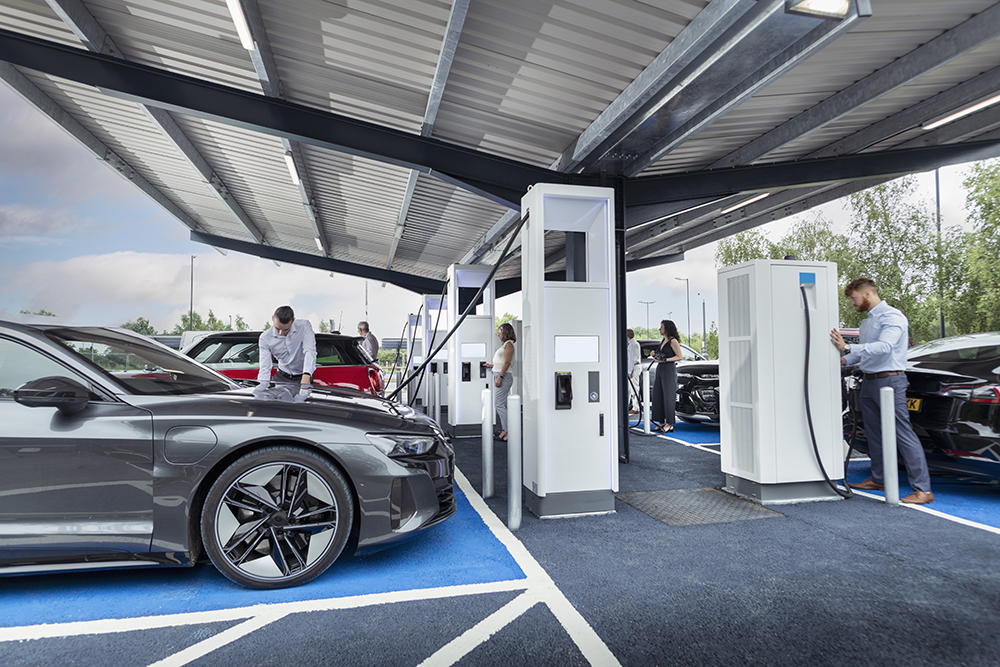A favorite trope of the “better stick with oil” crowd is that EVs aren’t any cleaner than ICE vehicles, because fossil fuels are consumed to manufacture and to charge them. Of course, all human activities have environmental footprints, but over the past decade, numerous studies have affirmed the lower lifecycle emissions of EVs compared to legacy vehicles.
A new study adds to the literature by comparing the lifecycle greenhouse gas (GHG) emissions of electric, hydrogen, natural gas and diesel trucks and buses in Europe. Its results indicate a clear pathway to decarbonize the sector: Battery-electric models can deliver the greatest emission reductions, even using the EU’s current electrical grid mix.
In “A comparison of the lifecycle greenhouse gas emissions of European heavy-duty vehicles and fuels,” the authors examine not only CO2 emissions from vehicle tailpipes, but also the GHG emissions arising from the manufacture of the vehicles and their components, vehicle maintenance, fuel production and electricity production.
A key finding: the greatest climate impact produced by trucks and buses over their lifetimes comes from the use or fuel consumption phase, not from the extraction of raw materials, construction or maintenance.
“The problem is not the factory but the road,” says Nikita Pavlenko, ICCT’s Fuels Program Lead. “The high greenhouse gas intensity of driving a truck during its whole life offsets the GHG emissions generated during manufacturing or the production of the fuel or the energy it consumes. Our study addresses the uncertainties surrounding the share of emissions in all stages of the vehicle’s life. It shows that only battery-electric and some fuel cell electric trucks can meet the climate targets in the sector.”
The comparison of the different powertrain options reveals that battery-electric trucks are the best option for reducing GHG emissions. Over its lifetime, a battery-electric 40-ton tractor-trailer will produce at least 63% lower emissions compared to diesel. As the grid continues to decarbonize, these emissions will fall—the study shows an 84% reduction of emissions when using only renewable electricity.
The study found that fuel cell trucks using hydrogen produced from fossil fuel produce 15% less GHG emissions compared to their diesel counterparts. The emissions reduction depends heavily on the source of hydrogen. If the hydrogen were produced with only renewable electricity, the emissions reduction could reach 85%.
“Increasing energy efficiency is the game-changing factor in shrinking the carbon footprint of battery-electric trucks compared to the rest of the technologies,” says Felipe Rodríguez, ICCT’s Program Lead. “These models become the cleanest option even if the source of electricity is not fully clean. This is not the case for hydrogen trucks, which can become a promising option in the future if hydrogen is produced from a 100% renewable energy source. Today, their capacity to reduce emissions is still limited.”
The study found that natural gas vehicles have lifecycle emissions ranging from 4% to 18% lower than their diesel counterparts.
“The climate benefits of natural gas urban buses compared to diesel are marginal at best when compared to diesel. Methane leakage may undermine the benefits of transitioning bus fleets to natural gas. Cities should consider their transport policy strategies with these numbers at hand,” says Mr. Pavlenko.
Source: International Council on Clean Transportation










































































































